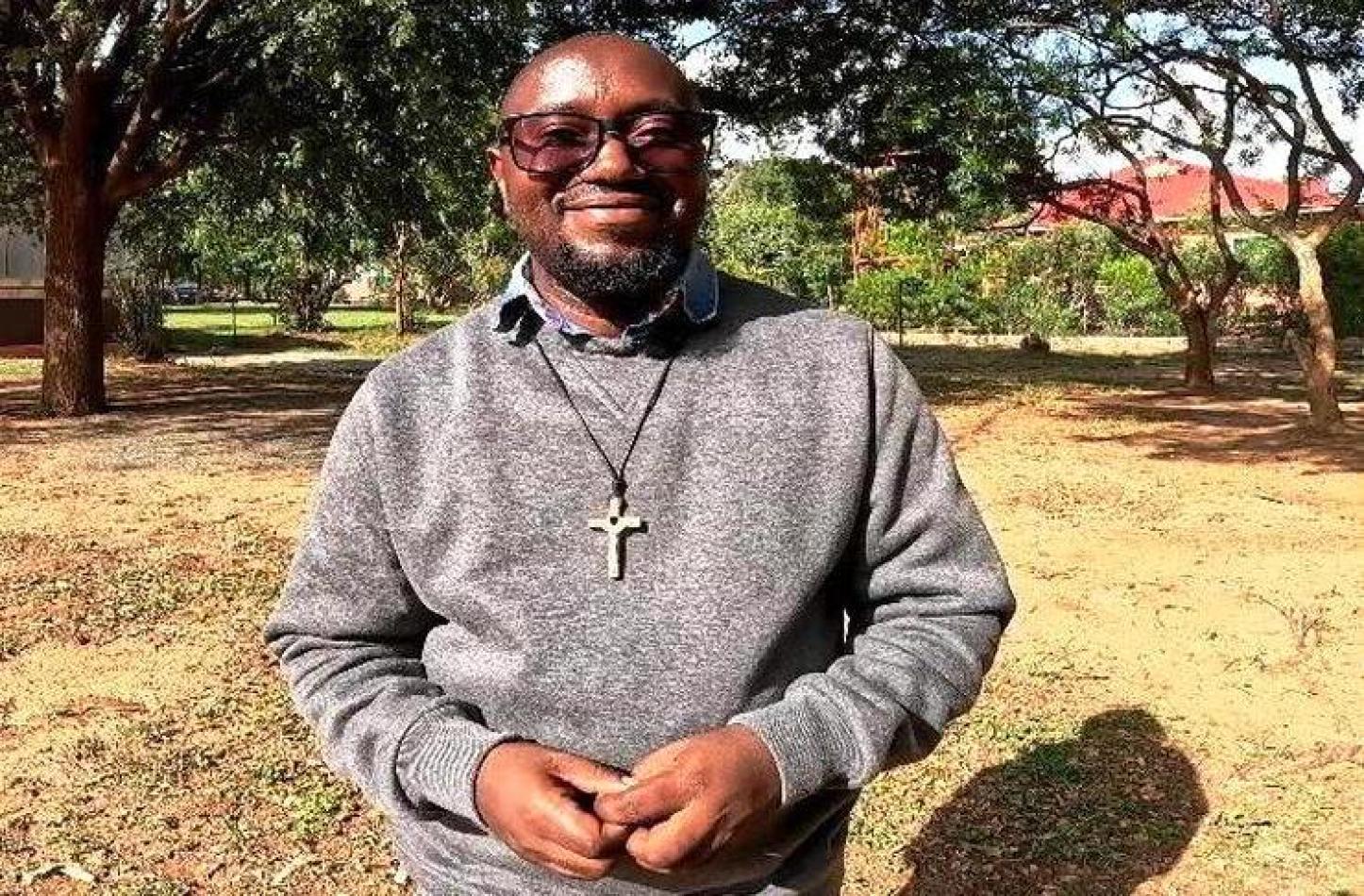Daniele Comboni
Missionari Comboniani
Area istituzionale
Altri link
Newsletter
Saturday, November 30, 2024
It is in the rugged terrain of Amakuriat, Kenya, that Father Jean-Paul Katembo Muhandiro finds his calling. Now in his third year at this remote parish, Fr. Jean-Paul reflects on his missionary journey. [Comboni Missionaries]
Jean-Paul’s missionary life began in 2009 when he joined the Comboni Missionaries in his native Democratic Republic of Congo. His formation took him across the African continent, from philosophical studies in Kinshasa to a novitiate in Cotonou, Benin, and finally to theological studies in Nairobi, Kenya. It was during his missionary service in Amakuriat that Jean-Paul first met the community he would later call home.
“My first impression was one of challenge and opportunity,” he recalls. “The needs were great, but so was the faith of the people.” Returning to Amakuriat after his ordination in 2020, Jean-Paul found that his perspective had changed. “My eyes are different now,” he says. “What I once saw as obstacles, I now see as opportunities to make a real difference.”
In just three years – one as a scholastic and two as an ordained priest – Father Jean-Paul has witnessed a transformation, both in the community and in himself. “Every day brings new lessons in humility and service,” he says. “The people of Amakuriat have taught me as much as I hope to teach them.
As he continues his mission, Father Jean-Paul remains grateful for the journey that brought him to the land of Pokot. He recalls his first visit to Amakuriat during Christmas 2015, shortly after arriving in Kenya for his theological studies. “I fell in love with the place, with the Pokot area,” he says, “with the lifestyle of the mission, with the work of our brothers, everything spoke to me.”
This early encounter sparked a passion that would shape his future. Throughout his formation, Jean-Paul was drawn back to West Pokot during his holidays, each visit reinforcing his desire to serve in this challenging yet rewarding environment.
For Jean-Paul, West Pokot embodies the essence of the Comboni charism – first evangelisation. “I come from a grown Church with many priests,” he explains. “I felt called to go where the faith is still in its beginning stages, to be part of this fundamental work of spreading the Gospel.”
Despite almost four decades of Comboni presence in the parish of Amakuriat, the region remains a frontier of faith. Jean-Paul faces this reality with enthusiasm tempered by humility, aware of the challenges that come with his vocation.
“The first challenge is always the language,” he admits. While he has made progress in learning Pokot – being able to understand conversations and carry on informal chats – preaching fluently remains a goal on the horizon. “It is crucial to reach people with the Gospel in their own language,” he says. The vastness of the parish is another major challenge. Over a distance of more than 100 kilometres, often over rough terrain, reaching all the parishioners requires considerable energy and sacrifice. But Fr Jean-Paul sees these obstacles not as burdens, but as opportunities to learn, serve and grow – bridging languages, cultures and hearts in pursuit of a higher calling.
The parish supports an impressive 24 primary schools and two secondary schools, providing spiritual guidance, support for teachers and financial assistance for students in need.
With a staggering 90% illiteracy rate in the area, education is not yet widely valued. While primary school support is focused on institutions, secondary and university students receive individual support. Selection for this support takes into account both academic potential and family circumstances, ensuring that help reaches those most in need. Their efforts are slowly but surely making a difference to the future of the community.
“We support between 20 and 30 students in secondary school,” says Father Jean-Paul. “In college, we have 10 to 15 current students, with another 10 to 15 new applicants waiting to join the programme. It takes a lot of motivation to convince parents to send their children to school, and even when they want to, financial constraints often stand in the way.
Perhaps one of the most touching aspects of the parish’s work is its support for disabled children. In a culture where disability is often seen as a curse, the parish’s efforts are groundbreaking. The programme, which has been running for several years, has already had a significant impact, with over 10 children currently benefiting from this life-changing support.
“Many parents aren’t willing to invest in disabled children, but with the support of our donors, we are able to provide medical care and education for these children,” explains Father Jean-Paul.
The struggle for education in this community is real, as girls are often victims of early marriage, a practice that is seen as a source of wealth in Pokot culture. In West Pokot, the cultural norm sees girls as destined for marriage, not as agents of change.
Father Jean-Paul points out: “We face the challenges of early marriage and pregnancy. We’re trying to help people understand that girls and boys have equal rights to education. It’s not easy when families are more concerned with dowries than in the future of their daughters. We pay special attention to the girls. The missionary emphasises, “our goal is to keep them in school long enough to become self-sufficient and contribute to society and the country as a whole.”
Despite progress in education, evangelisation has its own challenges. “Bringing men into the Church is particularly difficult,” admits Father Jean-Paul. “We struggle to find lay people who are willing to work with us to grow the Christian community.” This challenge is compounded by the prevailing polygamous culture, which is in conflict with Christian values. “Tackling this issue always leads to difficult conversations,” he says. With more than 50 chapels to serve and only three priests, the need for local volunteers is acute. But the missionaries persevere, believing in the transforming power of their message.
Robin Moline Atieno – Comboni Missionaries




